American Theatre's Racial Reckoning with The Black Artist Coalition
Daughters of Lorraine Podcast Season 2 Episode 4
Leticia Ridley: Welcome to Daughters of Lorraine, a podcast from your friendly neighborhood Black feminist, exploring the legacies, present and futures of Black theatre. We are your hosts, Leticia Ridley ...
Jordan Ealey: And Jordan Ealey. On this podcast, we will discuss Black theatre history, conduct interviews with local and national Black theatre artists, scholars and practitioners, and discus plays by Black playwrights that have our minds buzzing. So please stay tuned.
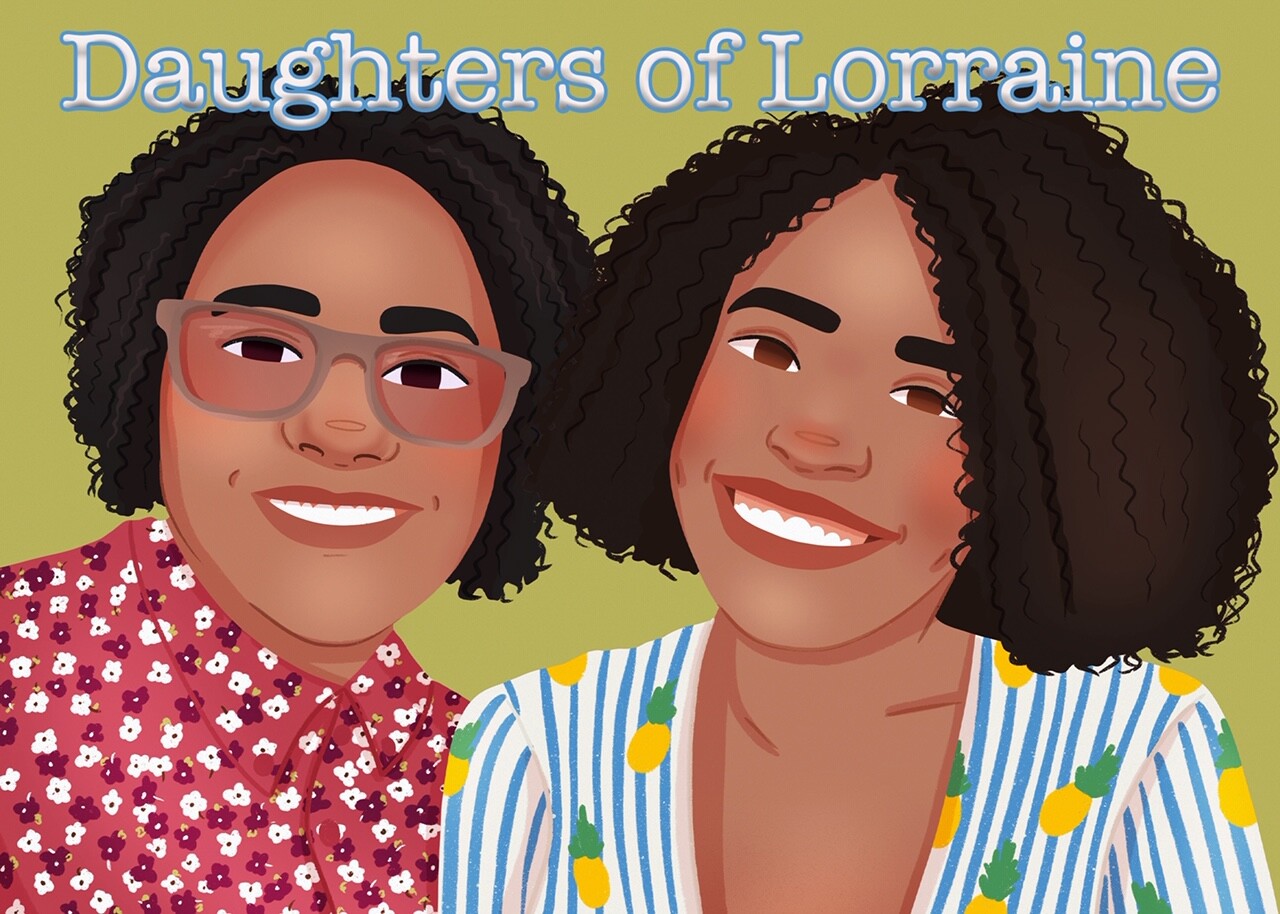
Daughters of Lorraine Podcast logo by Clarissa Bittes.
Leticia: On 8 June, 2020, a group of playwrights, actors, designers and stage managers penned an open letter entitled, We See You White American Theatre (WAT). In the statement, the theatre artists identifying as Black, Indigenous and people of color were commonly referred to as BIPOC, addressed the American theatre's White supremacist underpinnings, citing instances of racism, anti-Blackness and patriarchy. The statement received well over 50,000 signatures just in the first weekend after its release.
The initiative did not end there, following their letters, WAT also established an Instagram profile dedicated to nonwhite theatre artists anonymously sharing their personal experiences with racism in theatre spaces. This also continued on 10 July, when WAT released a twenty-nine page document of demands, including but not limited to a requirement that production teams must be made up of at least 50% people of color, and transparency with regards to funding, hiring and curatorial practices.
Jordan: While this collective statement of demands is a watershed moment for American theatre, it certainly is not a singular one. Artists of color, particular Black theatre artists have been demanding more from the American theatre industry for decades. Even the initial WAT letter references August Wilson's groundbreaking speech, the Ground On Which I Stand, where he, like WAT, calls out American theatre's unwillingness to artistically and financially support the work of Black theatre artists and theatre artists of color, publicly calling for structural change.
This can also be traced back to artists such as Aida Overton Walker, Zora Neale Hurston, Langston Hughes, Douglas Turner Ward, and Amiri Baraka, among many others, who champion Black self determination and social justice for the lifeblood of Black theatre.
Leticia: Today's episode is dedicated to Racial Reckonings in the American Theatre. We will discuss how Black theatre artists have challenged White supremacy and anti-Blackness in theatre, as well as discuss Black theatre institutions and their long history.
Jordan: Later, we're joined by Vaughn Ryan Midder and Kevin Stephen McAllister of the Black Artists Coalition, a newly formed collective of Black theatre artists in the DMV and Baltimore areas. They give us their personal experiences of working in professional theatre while Black, as well as some exciting information about how they're coming together to challenge the industry.
Leticia: Jordan, do you know what today is?
Jordan: No, I don't.
Leticia: It's Racial Reckoning Day on Daughters of Lorraine.
Jordan: Is that something we should be celebrating? I'm not sure.
Leticia: I feel like it's not a bad thing to have a reckoning, but it's also bad how Black artists and artists of color have been treated, that it has to come to this. But it had to come to this, yeah. Like we said in our introduction to the episode, surprise, surprise, this is nothing new. Black theatre artists have always been at the forefront of challenge American theatre to shift and change their practices to be more equitable.
Jordan: Exactly, exactly. To probe them to fund Black theatre, to support it by coming to see our plays, and there has been a long history of Black people investing in themselves, but also, there's just as long of a history of Black people saying, "Hey, we're here. Where's the money? Where's the support?" It's not like we're not doing it, but if you're going to do it, then we need to get a little piece of that pie to.
Leticia: Yeah. It seems like historically institutions have been important to thinking about how does Black theatre not just be a thing, but thrive? How do the funding sources contribute to Black theatre? I know recently, there was just an announcement that the Mellon Foundation is donating a certain amount of money, I think it's like five million dollars to Black theatres, which is shadowing or perhaps echoing the Ford Foundation with Douglas Turner Ward.
Jordan: Yeah. Let's talk a little bit about this history of Black theatre artists. So an essay that I know both of us started our Black theatre classes off with is mister Black theatre himself, WEB, I call him We-Dem-Boys, no, but seriously, Dr WEB Du Bois' essay on Black theatre, and it's his philosophy of what it should look like and what it should be.
Leticia: Yeah. What I love about this statement is it's so unapologetically Black, and I think what Du Bois is trying to push at that time folks to think about, in the American theatre think about is the utility of theatre for Black folks, and what does it mean to create a space that centers around Blackness and around Black people? Not just where Black people are necessarily put on stage for viewership, but also seen as equal audience members. I love that Du Bois is mostly known as a sociologist, and I think sometimes our sociologist friends forget that he was actively engaged within the theatre and thinking about how theatre impacts change in the world and the work that it can do.
Jordan: Right, exactly. For those who are not familiar with those principles, he was the original FUBU. For us, by us, near us, about us. So WEB Du Bois is trying to get Black playwrights and Black theatre artists, Black theatre makers to think about how can we bring this Blackness, this richness of our culture to the American theatrical stage? Something that again, Leticia and have found some value in teaching that to our contemporary classes, so obviously it's a principle, or his principles are still very relevant to the work we do today.
Leticia: Yeah. I think he's one of the first to name something that I think all Black theatre artists, or even lovers of theatre were thinking at that time. To name it in a way that is so explicit I think has power, and even today, students when I teach it are really grappling with, "Well, if these are the tenets of a Black theatre, of what makes something Black theatre, then how do we update it, shift it or change it for this moment now when there is this idea that we are a melting pot and that we are blended?" What utility does Du Bois' tenet have today?
Jordan: Right, exactly. One of my favorite Black theatre artists of the early 20th century is Aida Overton Walker, who, for those who may not be familiar with her work, she was known a lot for her Salome dance where she transformed this dance that was usually performed with White women theatre artists, which was basically stolen from the Asian continent, but okay. But Aida Overton Walker took that dance, she was the first Black person to perform this dance and it became very... She was a big deal.
But one of my favorite pieces that she pinned in the early 20th century, I mean this is in the 1900s, so we're in the turn of the century here, is the Color Line in Musical Comedies is this essay that she wrote. She challenges the American theatre to really think about what they're putting on, how they're putting Black people on stage. She says, "The public does not appreciate our limitations, or rather the limitations other persons have made for us." She challenges White companies that are only putting one single story about Black folks on stage, about the love story, about all of these things, and really bringing this Black feminist, I would say, viewpoint to the American theatre way before we're thinking about Black feminism and theatre and performance. She's already so forward thinking in challenging these notions about musicals and about Black performance, and what Black people are expected to be on the stage. I love returning to that essay, because I just think that ... Wow, she was just brilliant.
Leticia: Yeah. I think it also just illustrates the difficulty for the Black theatre artist historically, and even today. This notion of how much do I play in to work, to feed, to live, and how much do I pushback, and in what space am I allowed to do so? So it might be, WAT has some big names attached to it. So there's power in having your biggest playwrights, your biggest actors signing on, but what about the Black theatre artist, playwright, designer, stage manager who is just starting out? How do they navigate the difficult position of calling out racism or sexism within American theatre, at the same time, where we all know you can be punished?
Jordan: Blacklisted.
Leticia: For doing that very thing. American theatre historically, for me at least, has this façade over it that I think it's like, "We're all theatre people. Of course, we're liberal. We're accepted, we accept everyone."
Jordan: We were the geeks, we were the losers in school. I get it, I went to a performing arts high school. I get it. But yeah, you're right. It purports to be this liberal space, but WAT and the artists that we are mentioning here today have proven that's not always true.
Leticia: Yeah, absolutely.
Jordan: So you actually mentioned Douglas Turner Ward a bit earlier, so let's get into Douglas Turner Ward and why he's important to this conversation about racial reckoning.
Leticia: Yeah. So Douglas Turner Ward, for folks who may not know, was one of the founders of the Negro Ensemble Company. Essentially, how the Negro Ensemble Company came to be was actually from an op-ed that he published calling out, similarly to WAT, White American theatre. So the article was in the New York Times and it was called American Theatre: For Whites Only.
Jordan: I love that title. I almost want to teach a class called American Theatre: For Whites Only.
Leticia: Essentially, in the article, he asserts the importance of a physical space for Black artists to develop their skills and create art that speaks directly to a Black audience. So this is how the Negro Ensemble Company becomes a thing, because the Ford Foundation reads this and is like, "We want to give you almost a half-a-million dollars to create this theatre that you want. We want you to develop a Black repertoire company to present works on social themes and expand opportunities for Black theatre artists."
Jordan: That is powerful, right? Who says an op-ed can't do something? A lot of people are like, "Why are you all still writing think pieces?" Because think pieces get things done. But I really love that historical piece of information, because it really is fascinating that this came because Douglas Turner Ward had the chutzpah, the moxie to call out these institutions. It's just like, "Where are the Black people? Oh, sorry, Black people are here, they're just not being funded. They're just not being casted, they're just not being invested in." This resulted in the Negro Ensemble Company.
Leticia: Huge.
Jordan: Which is huge.
Leticia: Huge. Even Douglas Turner Ward and the Negro Ensemble Company is huge in Black theatre at large, and we recognize the institution for what we did, but there were some difficult conversations once the NEC got the money to create what we know now as the NEC. We have someone like Barbara Ann Teer, who was a part of the founders initially, but one, didn't want to use the word Negro in their title, and she didn't want to be in Greenwich Village where the Negro Ensemble Company's building actually existed. So even her idea of what an institution that's centered on Black people was very different from the vision of Douglas Turner Ward.
Jordan: Right. One of the founders of the Negro Ensemble Company was a White person, correct? The first two plays that they produced in their very, their inaugural season were White playwrights. So these aren't perfect practices, these aren't perfect spaces, but the point is, is that they had the funding and they invested in this theatre that was dedicated to Black artistry. Even Barbara Ann Teer began the National Black Theatre, which is still in existence and still running today. So even if they didn't come together to create one big Black theatre, this resulted in two very influential spaces.
Leticia: I think that's an important point that you're bringing up, Jordan, because the fact is not that we are like, "We need one space for Black theatre to thrive." But rather, we need multiple spaces and multiple theatres and multiple opportunities. I think sometimes this conversation can end up being, "Well, we gave you that one thing over there, why don't you go over there and do that thing?" In a way that I'm like, "Actually, no. There should be many Black theatres. There should be many opportunities for Black theatre artists to create and be a part of the work that they want to be a part of."
The issue is, it's like, "We give you the one thing and then please be quiet and move on." I think that's what this statement, the WAT statement is actually pushing us forward and towards a bit further. Of like, "No, we're not just going to take the crumbs anymore. No, we're just not going to let you do the one Dominique Morisseau play that you're going to do. Hey, why don't we bring August back in here? Lorraine, we love that Raisin." We're not going to just accept that anymore, but we're going to ask and demand that you do what is right. Because it's not like these shows are not going to be seen, because we see a lot of theatre when theatre was a thing in theatres.
Jordan: In the before times.
Leticia: Where the audiences are there, so what does it mean to call for radical change?
Jordan: Yeah. What does it mean to invest in Black audiences too? We talked about that a lot, people want to go back in our archive, and I would say in tandem with this episode, really listening to our episode on what to send up when it goes down. Because that to me is the example of how you foster Black audiences, alongside making a space for Black theatre, going in Black communities, having that dialog and making space for Black theatres to thrive. So that's a great example of investing in that, but this wouldn't be a conversation about racial reckonings if we didn't recognize one of the most influential essays or speeches around this topic, which is The Ground On Which I Stand by August Wilson.
I first encountered that essay my first year of graduate school I believe, a shout-out to my advisor, Dr. Carpenter. We had to read that essay in her class, and I just remember reading that and being so inspired. I don't know. This is the essay, or excuse me, the speech that he gave at the Theatre Communications Conference in 1996, then it was published a few years later. In that speech, he calls for a radical transformation of the American theatre. He stands on the ground of Amiri Baraka, of his ancestors on the African continent. He's very much invested in bringing this Africanist presence to the American theatre, and saying like, "No, it's not enough to just program my play. You need to be ... This needs to be happening on all levels."
Leticia: Yeah, it's happening at the height of his career, so it's not like August Wilson is not getting produced or he's like, "Just do my play, please." He is actually using his cultural capital that he has gathered and trying to do something or call American theatre to shift their programming and to shift the space that they give to Black theatre. I love what you said about this idea of a lineage, like even the name, The Ground On Which I Stand, even in the WAT statement, this recognizing of August Wilson's statement prior.
Jordan: Is the ground on which they stand.
Leticia: Exactly. So it's like this continuation that both of those statements are recognizing. So it's not just, "Hey, we're just now saying something." But no, we've asked for this repeatedly and you said you were going to do something different, but still here we are at this place that we have been to prior. So American theatre, what are you going to do? This is a reckoning and we are going to hold your feet to the fire until you do something.
Jordan: Right, exactly. One of the things that I saw, for example when Baltimore Center Stage released that statement of like, "Here is what we plan to do in response to this letter." I can't wait to see other theatres actually make an action plan for addressing these issues. It's something that I am hopeful for that we will go into this next phase of whatever theatre may look like in the coming years, and realize that "Shoot, we're in a pandemic, this industry may or may not survive. Why don't we go ahead and work together to make this new way of doing theatre." Right?
Leticia: Absolutely. I think what you talk about is not just the WAT doing the work, but also other smaller entities around America of Black theatre artists coming together to make some radical change. So I'm so excited that we will be talking today to Vaughn Ryan Midder and Kevin Stephen McAllister today of the Black Artists Coalition in the DMV area, because the work that they are doing is at the forefront of actually shifting and changing theatre in the DMV area.
Jordan: Yep. We're looking forward to hearing what they have to say, so let's get into hearing them.
You all didn't want us on stage decades ago because you valued the breadth of our humanity or because you valued our individualism or the fact that we weren't a monolith, so how could you think even in 2020, with all that's happened, just because time passed, putting Black bodies on stage doesn't require even more analysis or consideration?
Leticia: Thank you all, both, for joining us today for Daughters of Lorraine. We are so very excited to welcome Vaughn Midder and Kevin McAllister to our podcast. They are both a part of the Black Artists Coalition, which was recently founded to address racial justice in the DC theatre industry. We are just delighted to get the chance to talk to you both, so thank you so much for joining us today.
Kevin McAllister: She makes us sound fancy, I like it.
Jordan: You are fancy, and our viewers, or not viewers, our listeners are definitely in for a treat, because I'm so excited, the work that you're doing in the DMV area, and just for them to get to you know you also as artists and creatives, and just show like, "Yep. Artists out here, we do both. We fight for justice and then we'll still be on your stages cutting up too." So I'm so excited, so, so excited. Yes, definitely. Let's give you both an opportunity to introduce yourself. Tell us a little bit about yourselves.
Vaughn Midder: Okay. My resume is shorter, so I'll get mine out of the way. My name is Vaughn Ryan Midder, I'm an actor, director, just overall creative storyteller in whatever way I feel like I can do so, in Baltimore City. I'm the communications chair for the Black Artists Coalition.
Kevin: Hey, hey, hey. My name is Kevin McAllister, I am... I hate you Vaughn. I am an actor, who has worked a lot, the Broadway and Regionals Theatre here. I am both musical theatre and opera based, don't listen to him. I am also a director in the area. I'm also an artistic director of all-Black production company called ArtsCentric, located in Baltimore, shout out to me and ArtsCentric. Yay. I am the head of video event planning, coordinating for the Black Artists Coalition.
Jordan: Told you all, we've got some hitters on our podcast today. So you're going to want to tune in and listen to this episode for sure. So for our first question, what we want to ask you both is what are the larger challenges of being a Black theatre artist in today's theatre industry?
Kevin: Sorry. You've got to start with the laughter always. I think the challenges we face as Black artists, I will speak for myself, because that's the only person I know, I think it's hard, one, to not start with acknowledging that you're Black. I have had very few experiences where I had not been immediately reminded that "You are the Black guy in the room." Most times, you may be the only one, if not looking for the one person who may work in the box office part-time. But it has been very hard, and I don't know that that's necessarily a bad thing, but it's also a thing where you sometimes have to remind yourself that your race definitely may affect your purpose in that room, why you were hired and why your race is being used to offer this presentation.
That could apply to both directing or acting or producing. Are you using me or hiring me because you want to say, "I have someone of color in this position." Am I being used to reinvent or reimagine, and if so, are you using that as a point for selling tickets? What is it you actually want from me? I've found that most times when I've asked, I've gotten the wrong answers. So you learn to gauge how much truth you really want to know when you enter a room, and I think that's become part of the problem with us being artists. Because we want to know that we're loved and appreciated, but we also need to know when it's not that. Then what do you do when you know that isn't the case?
We wanted to do this show, but we thought we would sell more tickets or have more people in the audience, so we said, "Hey, we've got a Black guy in this role. Isn't that interesting?" So for me, it's just the constant mirror that I have in front of me when I look at how people see me in a lot of spaces, is a thing that I have to deal with all the time. My answer. But I don't, Vaughn's might be much better than mine.
Vaughn: I'll just leave that as an ellipsis. I think what a lot of people sometimes just forget is that theatre, like every other industry, is just a business, so we deal with a lot of the same things that every other Black employee in any business deals with. A lot of it deals with limitations and typing. When it comes to speaking from the performer side of things, there's sometimes, especially early in your career, an either/or game that you consistently play, which is either most of the decisions makers just don't have the capacity to see Black performers as being able to do everything that our counterparts can do. They don't see the full humanity of our narratives. They don't find themselves as interested or accessible to the stories that expose the fullness or the breadth of characters.
So you don't really get to work that much in the stories that you're passionate about, or you're on the other spectrum where they romanticize us or fetishize us for our gospel vocals or for just our soulfulness or sassiness and spice in a character or wherever they can fit us as one of many among the ensemble. Along with that, even if you do find yourself getting consistent work, what I don't think our counterparts realize as often is that even when we take our bow at the end of the performance, we're still not technically, I hesitate to say out of character, but we're still very much on. I don't think we necessarily want to say we're performing, but when it comes to being in talk-backs or being in the lobbies or being at first rehearsals or receptions, cabarets, things like that, we still, like every other Black employee in any other business, we still can't be necessarily the fullness of ourself.
That's at the root of what I think drove a lot of us to creating the Black Artists Coalition is making that the standard. That no matter where you go, in the audition, on stage, off stage, in the dressing rooms, you don't have to code switch as much, or you don't have to censor or filter yourself as much because of the industry's inability to comprehend the fullness of us.
Kevin: I think we're finding what he was saying, I think the code switching and all that, it's so a part of us, if that makes sense. We know what we need to say, or most importantly, what not to say to make sure that we stay in good graces, we're further employed, we make good connections. It's exhausting, because we have all been in talk-backs when the audience has asked, "Talk to us about this rehearsal process. What has this experience been like for you?" You're going to be like, "Racist. Really racist. I've been really upset, I'm angry, it's just demeaning." But you have to say, "The director, we all just worked together and it was a community effort to just understand the layered story."
You're like, "I'm just lying through my teeth." But nobody really wants to know that I feel bad doing this show every night, nobody really wants to know that I've tried to quit. So I think the BAC, like Vaughn is saying, is just really trying to give Black artists a hand to hold, if that makes sense. We've been so divided for so long and we've all known about these things, but we've never carried these things collectively from one institution to the next. So I think what we're looking at is trying to get all of us on one page and saying, "Collectively, this is what we're not going to deal with anymore." Because I've heard her story and I've heard his story, and now I know that I'm not alone and I know that you know that I deserve better, because we've had these conversations already.
Leticia: No, that's really poignant. Both of you talking about tokenization, so being the one in the room, or the ways that Black people... Vaughn, that was such a wonderful example of musical theatre where Black people are expected to sing a certain way or do this certain thing. The shucking and the jiving that people are expected to do. So that is definitely something that I feel like is being addressed through the BAC, and I would love to hear just about that process of coming together. How did this coalition... I love the word coalition rather than organization or any of that, the use of the coalition I think is so interesting to me. But I would love to hear about the process of how this came to be and how you all started to organize around these particular issues that you both have addressed.
Kevin: Well, it came from Vaughn. It literally was Vaughn's brainchild. He's very modest, but it was his idea.
Leticia: Don't be modest, we encourage Black people to be confident.
Kevin: He's one of the best people on the planet, but it literally was his idea. He reached out to someone else who we're mutual friends with, and she was like, "Hey, talk to Kevin." I am, to my own detriment sometimes like, "New idea. Moving Black people forward. Yes, on it. Right away, now, let's go." Let's not plan it out, let's not take time and do a couple meetings and write things out, let's just get everybody in and let's figure out how we make this come together. Vaughn was very much like, "Okay, yeah. How's next week? Great. I've already talked to these people, we're going to start with these people, then we'll figure out what we want to do and then we'll talk about it there."
So once we got together, it was him and then I reached out to two or three other people and said, "Hey, I respect what you guys do." Nova Payton, Tobias Young and Sean-Maurice Lynch, and I said, "Hey, we have all been on the worst side of things. I know, first hand experience that all of us have been backhanded a few times. From the pay scales to the dressing rooms to the conversations to the indirect looks to the way we were cast, the way we're not cast, the costumes they put on our back, to the way they advertise us. It has hit all of us, and so Vaughn has this great idea." And I would let Vaughn explain what it was and from there, we were all like, "We're on board. Let's do this." I'll let Vaughn detail what his idea was, but it came from him.
Vaughn: We can debate that later. I think that I've always joked, but not really, once again, in any business, company, organization, group of people, I always feel like regardless of what discipline it's in, there should always be one person whose sole job is to simply say no to everything, so that it forces everybody on the board to at least think about whatever plan they were discussing a second time or a third time. I really just wish that was the case with every board on every theatre. I was just thinking wishfully like, "I wish that every theatre would just reach out to Black people before doing something that has to do with Black people."
Because we are not a monolith, I also wanted to have a way to get insight from the Black community and pretty much just put into numbers on paper to present to theatres in a way that they'll understand all of the anecdotes, all the testimonies, all the stories that we talk about silently amongst ourselves at home with drinks to vent and let go of whatever we're dealing with, which has just normally been our survival. Put it on paper to give to theatres, so that if they weren't aware of it, they are now. If they were already aware of it or already making plans to reform their theatre, at least they could have a document from the community members themselves saying, "This is what we feel needs to be addressed." So that we don't have to go through the circles of, "You made an attempt with this and you are now upset because we're telling you that doesn't really help us at all."
We're actually having conversations with you saying, "This is what has been done to us and where we're coming from." So yeah, I sent it over to Kevin and this was towards the end of June I think, somewhere around there. Yeah, it was really just to offer up a much more direct line of communication between the community and the theatre, so that nobody felt like they were going to be the lone sheep with this weight on their shoulder or with the fear of being, pun intended, blacklisted as some of us have been in the past with certain theatres. There's power in numbers, and on the tail of all the theatres releasing these very similar "We stand with you, Black solidarity" social media posts, with the industry being on pause right now, it was the time to be like, "So what do you mean by that? Because here's what we have to say on our end, so to what extent do you actually stand with us?" So that when we come back to the stages, we're actually in a better place. That was pretty much ...
Jordan: Yeah. I love this idea, both of you talked about being structural, and I think a lot of times outsiders that are not embedded within the theatre may think like, "Well, it's a personal thing. It's an individual doing something to another individual." What you both are speaking to is actually no, it's deeply ingrained into the theatres that you go to, that you perform for, and it goes beyond just what's on stage or what's a part of the season. It goes into the boardroom, it goes into the costume room, it comes with you in the lobby.
I think it's so important the work that you all are doing to not only just move Black theatre artists forward, but actually highlight the structural way that theatre has always marginalized Black people, at the same time as they make money off of the same Black people they're marginalizing.
Vaughn: Even if we did limit it to what happens on stage, to your point, historically that's why they put us on stage. The history of theatre and Black people is not a pleasant one. You all didn't want us on stage decades ago because you valued the breadth of our humanity or because you valued our individualism or the fact that we weren't a monolith, so how could you think even in 2020, with all that's happened, just because time passed, putting Black bodies on stage doesn't require even more analysis or consideration? A lot of people say theatre is a safe space to explore unsafe topics.
Like many other arenas, that's sort of the case for everybody to an extent, once it gets to Black people. To Kevin's point earlier about like, "We haven't really told you all a lot of the unsafe things that have happened in trying to create this safe theatre for the masses." So yeah, it's—
Kevin: I think, yeah. I think what Vaughn is saying, I don't know any group on earth that collectively decides to sacrifice itself for the greater good, other than... Black people collectively will always take a step back to keep a room calm, to keep everyone happy. It's just a thing, especially in the arts. I've found that I have been the lone wolf several times, been like, "I am sorry. This is the most racist thing I've ever heard in my life. I need a 10 or somebody needs to be fired, because I can't work here." But it's hard, when you look around you see two or three Black people who don't have as many credits or not as connected the higher-ups, and they're like, "Man, we feel you, but they like you. You've established yourself. We don't want to step forward."
But we've also discovered in our talks with some of the heads of these theatres, unofficially, that they just know it to a certain extent, but there's so much they just don't know. They have no clue how many Black people are working for them, they have no clue why they've chosen certain shows, they have no clue why people are upset with them and why these responses and Black Lives Matter and all these things are necessary. They couldn't fathom that, they feel like, "We've done Raisin in the Sun, what do you mean we don't love you? We did Dreamgirls, what are you talking about? We did The Brothers Size, I don't get what you're saying. We like Black people. We did it because the theatre was losing money, but we did the show. We didn't use any equity actors, but we did the show."
Leticia: Whew.
Kevin: Basically looking at all of these statements of unity that are coming out and basically putting them under a magnifying lens and saying, "All right," like Vaughn was saying, "Line by line, what is this? How are you going to adhere to this? What do we do, what do you offer us if you don't adhere to this?" So we're really looking at not only being ... We don't want to be something that's deemed negative, that's the thing. It's important to us that we look at integrating and restructuring as positively as we can, but making sure that we have a firm hand upon how we are being represented and why you're bringing us in the room and what you're going to do to take care of us when we're called the N-word eight shows a week.
It's a thing that we're all working with, because I looked at my resume when we first started this, and I was like, "Like 50% of this resume, I've been called the N-word a lot." So you don't realize that stays with you, you pick it up. I've found myself even in shows encouraging White actors like, "Just go ahead. Commit to it." What are you doing? But that's what we're taught to do, make the show—
Vaughn: That was a big part in our first meeting as well, because I had an initial idea of what became the Black Artists Coalition that stemmed a little bit from learning about We See You White American Theatre, and we made it a point to acknowledge the fact that, at least in the DMV, there's a difference between racism, or a distinguishment between racism and anti-Blackness. That was something that we also had to address. We feel like there's enough affinity groups, be them organizations or just social media groups that are advocating for the largeness of dismantling racism across the country, but there's, as history has proven, many ways of anti-Blackness not being addressed. I think it's evident, there's countless examples of why there's a need for groups like this to focus solely on that, especially when our numbers from the box office show that, "You need us, no? Yes? Right?"
Kevin: We're not against any other aspect of the BIPOC collective, what we're saying is that we need to focus, we need to start within our own house first. Especially in the DMV, because we found that consistently there are a lot of other, there are a lot of Asians, there are a lot of LatinX people who are employed. Black people are significantly lower in terms of higher administration in theatres. They hire people of color, but specifically Black, there aren't a lot of heads. The only person I know of is Raymond Caldwell and maybe Nicole Watson. Now everyone's just using press releases to bring in their Black employee, "Look who we hired, Black. We like Black people. This person's number 13 on the food chain, that's great."
But it's become so confusing that I don't even know what progress is anymore at this point. I don't know if people are being hired because they're qualified, or they're being hired because they want us to be quiet. Or they're hiring the less qualified person to prove that this is why we don't hire. So I'm just silently keeping my eye on who is moving forward and who is making decisions to do that, because I think it affects all of us. The BAC is now, the five of us reached out and expanded, so it's now 13 of us who are not only actors, but who are also just advocates and administrators and wardrobe supervisors. We didn't want it to just be the people on the stage, so it's well rounded. There's a lawyer in there who is about the business. So we're doing it right, we're looking at mental health, we're looking at just making sure that we're really looking at this from every aspect, and not self serving, if that makes sense.
Jordan: I think that's so awesome. That is so great. I just want to give you all an opportunity to talk about what initiatives are you currently working on, or you hope to address in the future through the collective. What's your big hope for the collective at large?
Kevin: The biggest initiatives right now, the BAC is currently collecting a set of data, in terms of hiring practices, who is working where, and sorry to say, what color, so that we can put together documented programs to specifically target, I think we have 25 theatres we're looking at right now. It might be more, 25, 30 maybe. So that we can set up individual meetings with each one of these theatres and go through how we can help them improve their infrastructure.
Before we get to that point, once we have data, we are looking at putting together a couple of private round-table discussions with actors and artists and supporters and advocates in the area to hear their perspectives on what they think their biggest issues are, so that we can, in the first two or three years, create a three-point program that we can see through from beginning to end. We find that a lot of organizations start with "We just want to change the world." It's like, "Yeah, but what is step one?" So we're looking at breaking everything down to maybe three large practices, and in the course of the next two or three weeks, we'll be itemizing what those are. So we've been exploring mental health, we've been exploring the pay gap, we've been exploring season planning, we've been exploring ...
Vaughn: Education that theatres offer.
Kevin: Education, hiring practices. So we want to get maybe two or three of those, and it's like the focal points for us, because we need to see continual progress. We're not expecting to dismantle and destroy everything in a year, we think that's a fool's paradise. So we are, everyone who is involved looks at this as a longterm project, so that we can actively communicate with theatres in the area and they can actively communicate with us about the problems, with things that they don't understand how to fix. Because I think that's part of the problem, a lot of people say, "We realize that this is a problem to fix, so we're going to stay in-house and figure it out."
It's like, "If you knew how to fix it, we probably wouldn't be in this. So how about you just let a few of us sit at the table and guide you?" So that's the longterm plan, just figuring out what the three main focuses of the organization will be. We'll know those probably by the end of the month.
Vaughn: Yeah. That's at the core of BAC, and then another pillar to it is just promoting this self production culture amongst our own community. One, just because we need more of it. I think every day when I scroll social media, there's just more and more discussions I hear across disciplines about how ownership is clearly just proven to be the sole avenue, not just to wealth, but to just being able to stay self sustainable. So we do produce some of our own productions as well, we have an event coming up called I Am ... A Celebration of Black Artistry, that will be streaming towards the end of this month as well, in direct response to all of the civil unrest that has been taking place the last few months.
So not only to encourage our own community to, especially in this hiatus, acknowledge the power that we hold in ourselves outside of the theatre, outside of the system we're used to playing this game in, to create our own world, our own work, but to also hold that in the opposite hand of our meetings with the theatres when it comes time to have those conversations about, "We're expecting to hold you accountable to what you said in meeting number one, in meeting number two. You said you were going to show proof that you were making an effort to X, Y and Z initiative, and so we can't force you to do anything, but we want you to realize that we recognize the power that we hold, not just creatively, monetarily. While you're figuring this out, you can see that we're over here doing something. So if you keep thinking that Dreamgirls every two years is going to be enough..."
Leticia: It ain't going to cut it, fool.
Vaughn: It's not going to cut it.
Kevin: Especially when we just take all the Black people. We've learned there is distinct pay gaps between Black actors and other colors in the area. We have significant witnesses who have come forward and be like, "Consistently, I've been paid less than my counterparts." So we get enough people excited and ignited about what the truth is, and then we take our power and we actually control the stories that are being told and who is going to tell them. We can collectively say, "I don't feel comfortable doing this Black show with this all-white production team." I experienced that from New York all the way down. You're going to tell me I need more what?
Vaughn: I feel like it needs a little more.
Leticia: A little what?
Vaughn: [inaudible 00:49:50]
Leticia: They love sassy, that's the best word.
Kevin: I love to play—
Leticia: I'm sorry, I'm not familiar.
Kevin: Just say it, just say what—
Leticia: No, I think that is so fantastic of these different ways of approaching it. One, yes, we're going to address the white-led institutional regional theatres that are controlling this industry, but then we're also going to invest in Black self definition. So us defining ourselves, us creating our own, investing in Black artists, investing in Black administrators, and having organizations and collectives that are involved in making Black art sustainable. Like you said, self sustainable. I love that term.
I just really am so happy that we got a chance to sit down and talk to you both. This has been such an illuminating conversation. Before you go, if you all would like to share where the folks can find you, both personal pages and also the Black Artist Coalition, where can people keep involved with what you all are up to and what the coalition is doing next?
Kevin: That's so funny, I thought you were going to say, "If you all feel up to singing or doing a monologue ..."
Leticia: Before you go, break into song. No. From Dreamgirls.
Kevin: No, so the BAC is slowly working on gathering, everything we're doing is meticulous and focused, and slow and steady, because we want to do everything right and invest in building a strong house to stand in and live in for the foreseeable future. So we are solely through social media currently, we are on Instagram, we are on Facebook, we are also on Twitter. I believe they're all Black Artist Coalition, you can find us, you'll see all of our head-shots. For me personally, I have Kevin McAllister, Kevin Stephen McAllister has his own Facebook. I'm on Twitter, but don't waste your time. ArtsCentric, my company has their own page, check us out, we're Black run, we're about that life. ArtsCentric.org, A-R-T-S-C-E-N-T-R-I-C. Like us on Facebook, get to know us.
Vaughn: If you're so inclined for whatever reason, my Instagram is Vaughn_Ryan, I'm on Facebook probably more than anything, Vaughn Ryan Midder. Echoing Kevin's comment about Twitter, you might find something with my name on it, but just—
Leticia: It ain't me.
Vaughn: Just keep scrolling. I'm actually trying to, I'm working very hard on trying to handle the overwhelming feeling of content intake, so follow me if you want but there might be some crickets for a while before you hear anything. But yeah, I'm there.
Leticia: Yay. Okay, so everyone go follow them, follow the Black Artists Coalition. We are so grateful that you all made time to talk to us today. The collective is doing some very important work and we are just delighted that we got to hear a bit about your journey. I'm so excited to keep track of what you all are up to. If we can support in any way, obviously, we would love to continue to hear about what you all are doing. Yes.
Jordan: So in light of the conversation that Leticia and I started, the episode with and the conversation that we just had with the folks from Black Artists Coalition, which was amazing, we definitely will never leave you all high and dry. We want you to continue having these conversations. So firstly, we wanted to highlight a film, a Daughters of Lorraine first, a film, and it's Arena Stage Theatre Company's The 51st State, which features some pieces in response to the murder of George Floyd and the surrounding political uprisings around that. It features folks like Caleen Sinnette Jennings, Paige Hernandez, and our very own guest from last season, Otis Cortez Ramsey-Zoe. So please head to their website and purchase tickets, and please check that out.
We also have a book, The Problem of the Color[blind]: Racial Transgression and the Politics of Black Performance by Brandi Wilkins Catanese. We also have some articles, so two that were mentioned here today in this episode, American Theatre For Whites Only by Douglas Turner Ward, and The Ground On Which I Stand by August Wilson. We also wanted to leave you with Black women who are doing some amazing, who have done and are doing amazing work in challenging the American theatre. So we have The Cult of True Womanhood: Toward a Womanist Attitude in African-American Theatre by Glenda Dickerson. Finally, In This Fine Suit: On Being a Black American Playwright in the American Theatre by Aleshea Harris, which can be found on HowlRound's website.
Leticia: Please read those books and articles, but as we know, we are theatre people, and theatre is also in this conversation, in things, in plays that are being staged are also engaging and pushing the American theatre and holding them to task for their racism and patriarchy. So some of those plays that we recommend is Day of Absence by Douglas Turner Ward. Yes, he wrote essays and plays and directed. Also, The Colored Museum by George C Wolfe. Finally, By the Way, Meet Vera Stark by Lynn Nottage.
Jordan: This has been a great conversation, and we hope you all will stick around with us for the rest of our season.
Leticia: This has been another episode of Daughters of Lorraine, we're your hosts, Leticia Ridley—
Jordan: And Jordan Ealey. On our next episode, we delve into a conversation about form in Black theatre and how different Black theatre artists revolutionized theatrical form. You won't want to miss it.
Leticia: The Daughters of Lorraine podcast is supported by HowlRound Theatre Commons, a free and open platform for theatremakers worldwide. It's available on iTunes, Google Play, Spotify and HowlRound.com. If you're looking for the podcast on iTunes, Google Play or Spotify, you will want to search and subscribe to HowlRound Podcast.
Jordan: If you're looking to connect with us beyond this podcast, please follow us on Twitter @DOLorrainePod. That's P-O-D. You can also email us at [email protected] for further contact.

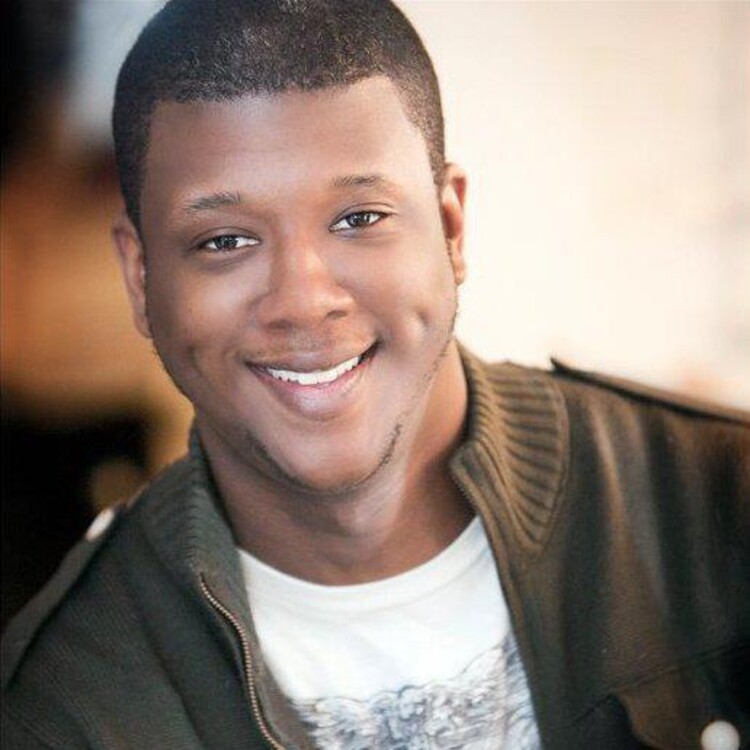
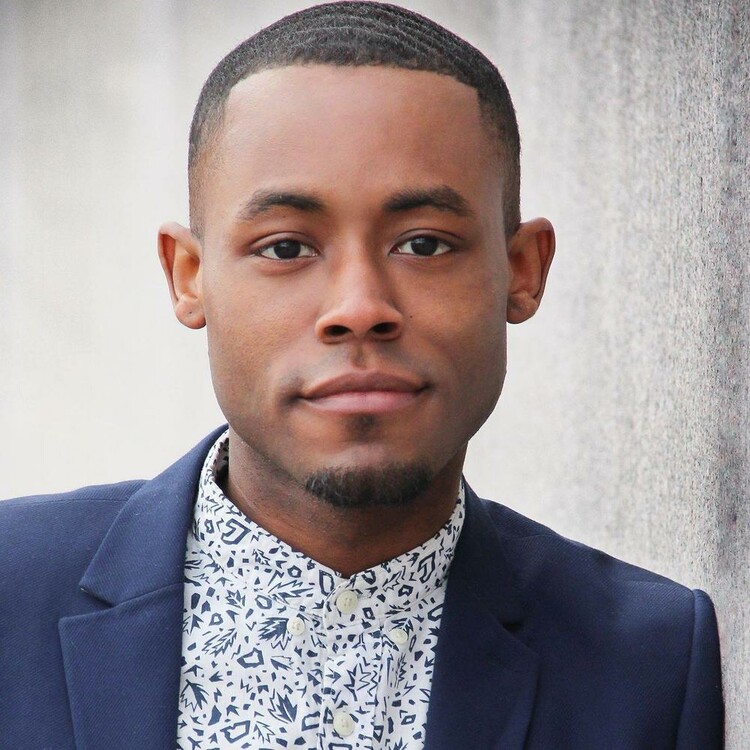
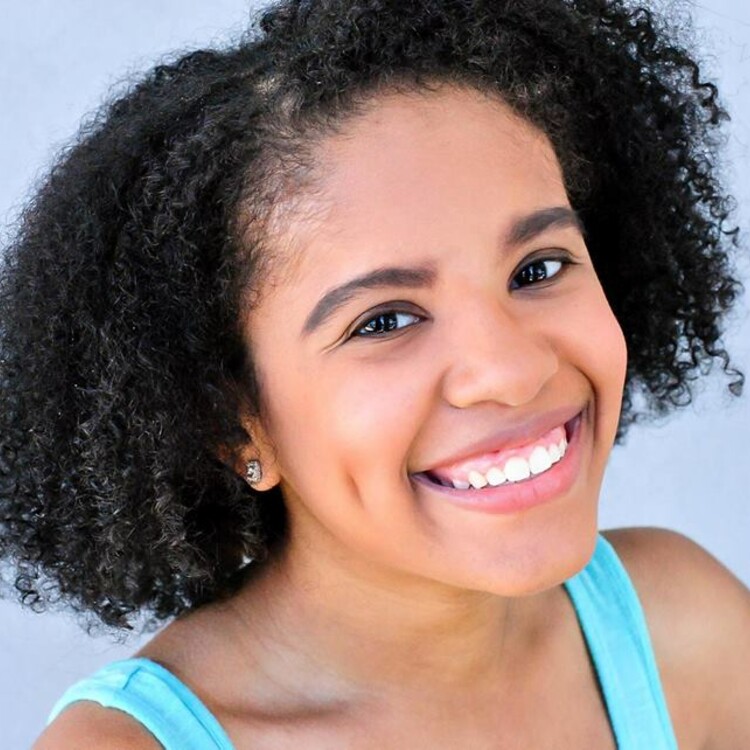
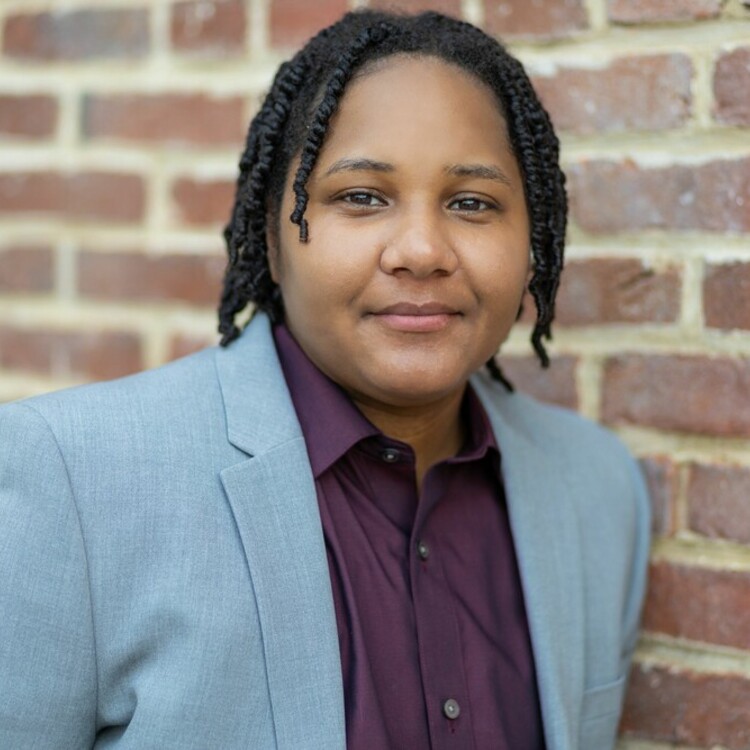
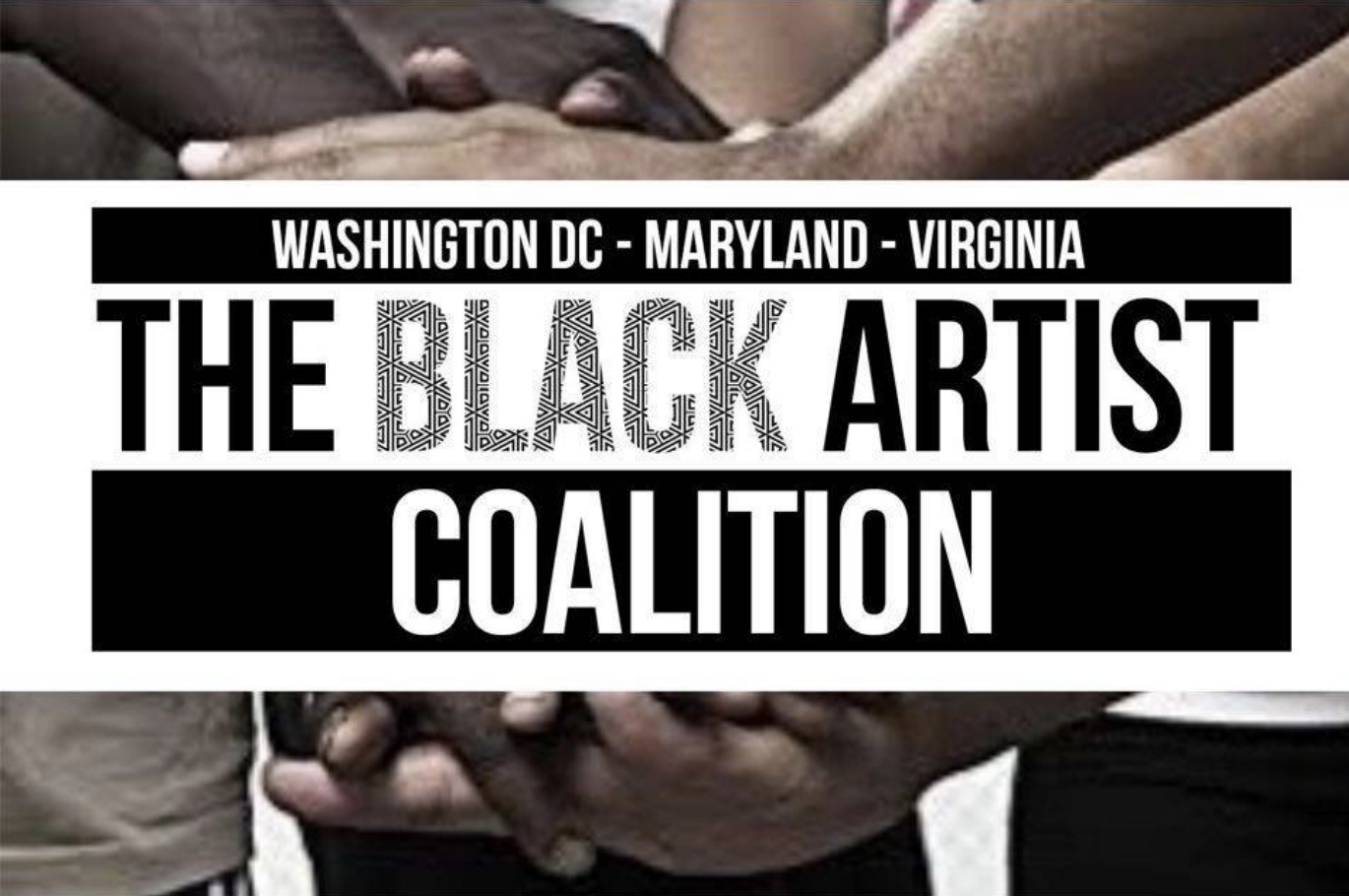
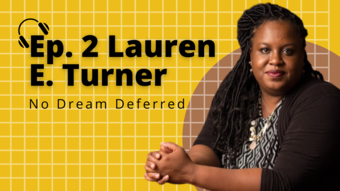


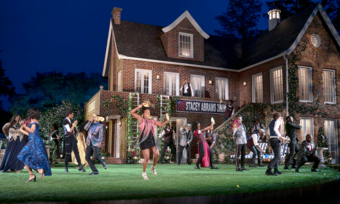



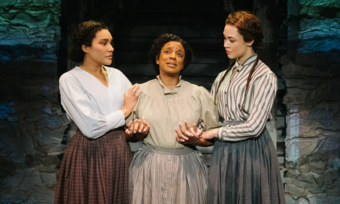
Comments
The article is just the start of the conversation—we want to know what you think about this subject, too! HowlRound is a space for knowledge-sharing, and we welcome spirited, thoughtful, and on-topic dialogue. Find our full comments policy here